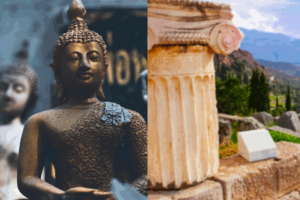Running away from an issue doesn’t actually make it go away. Even if we escape this one, we might encounter a similar circumstance in the near future. It’s pointless to be angry about something we can’t change. When we focus only on the things we can control, we are effective. What do we have control over and what don’t we? For instance, being afraid of storms serves no purpose because we have no influence over them. But we are in charge of our feelings about them. We are in control of our feelings about storms but not the storms themselves. Therefore, we have the option to not fear storms and even learn to enjoy them.
There is nothing wrong with favoring some items over others. Stoics avoid putting themselves in peril or uncomfortable situations unnecessarily. But if they believe something more significant is at stake, stoics do not shy away from risky or unpleasant situations. They are fearless and courageous when forced to face uncomfortable or risky circumstances. When something more significant is at stake, stoic courage means not backing down from situations that others might find unpleasant or dangerous.
What could be more vital than ensuring your own security and freedom from harm? For the Stoics, it is anything that is in keeping with excellence and reason. The unique ability you need to act is courage if doing so would go against the fundamental qualities of intelligence, justice, or moderation, or if it is not the sensible thing to do. The ability to accept that most of our fears are unfounded and have no bearing on us is a sign of stoic courage. Stoics are more concerned with acting rationally than they are with avoiding external events in order to keep themselves physically safe, because they are aware that these events cannot damage them. Don’t care about safety when more critical issues are at risk. The following factors form the foundation of stoic courage:
- What good is it to be terrified of something if we have no control over it?
- Why should we be afraid of anyone if what they do is out of our control?
- Why should we have an unjustified dread of external events if they cannot hurt us?
As a result, a Stoic develops fearlessness by not being afraid of situations that are out of their control. Being courageous in the face of aversions, such as not being afraid of poverty, public opinion, illness, or even death, is what it means to be a stoic. A Stoic is not reckless, and they are not brave only for the sake of being brave. Because they understand there is nothing to be afraid of, a stoic is fearless.









Most Commented Posts